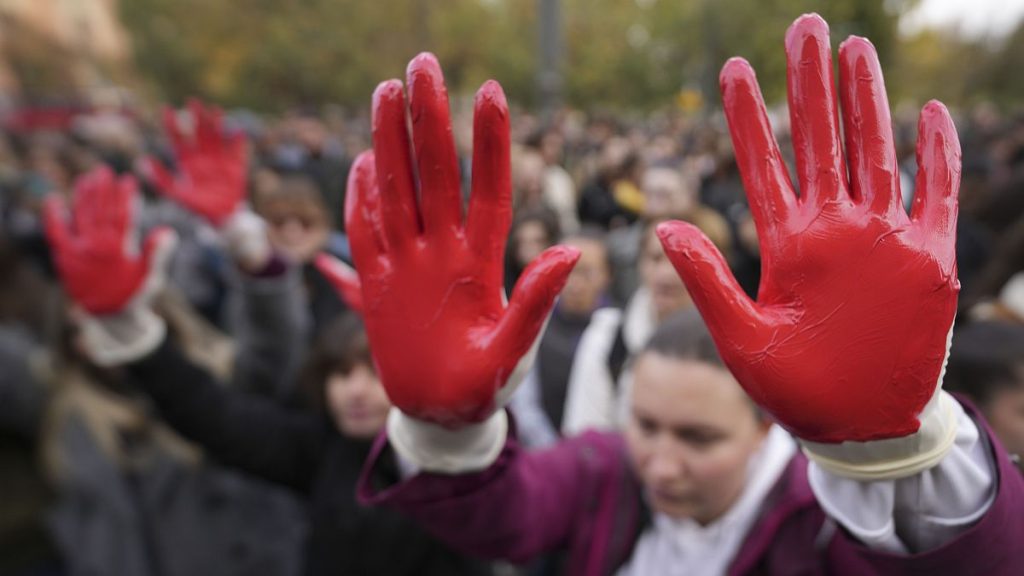In Novi Sad, Serbia, a tragic incident occurred when a concrete canopy collapsed at a railway station, resulting in the death of 14 people and injuring three others. This incident sparked outrage among the citizens, who demanded the arrest of government officials responsible for the tragedy. Protesters in the capital city of Belgrade left red handprints at government building entrances in a symbolic call for action. They called for the resignation of Prime Minister Milos Vucevic and Minister of Construction Goran Vesić, holding them accountable for the disaster. The protesters voiced their frustration with the government’s alleged corruption, lack of transparency, and poor quality of renovations at the railway station.
The collapse of the railway station canopy in Novi Sad shocked the nation, with victims ranging from a 6-year-old girl to young adults who required limb amputations. Funerals for the victims were attended by thousands of mourners in northern Serbia, reflecting the deep impact of the tragedy on the community. The station had undergone renovations multiple times in recent years, with critics attributing the disaster to corruption and negligence in the construction process. Some pointed fingers at the government’s dealings with Chinese construction companies, raising concerns about the quality of infrastructure projects undertaken in the country.
The protests in Belgrade against government officials were fueled by a sense of grief, anger, and despair among the citizens, who felt that they had nothing left to lose. Liberal politician Biljana Stojković expressed the growing awareness among the people about the need for accountability and justice in such incidents. The demand for resignations and accountability from government officials highlighted the frustration with the lack of consequences for those in power. The tragedy at the railway station not only resulted in loss of life but also highlighted systemic issues within the government that needed to be addressed.
In response to the protests and public outrage, Serbia’s populist government promised a thorough investigation into the railway station collapse. Prosecutors stated that they had already questioned several individuals in connection with the incident, signaling a commitment to holding those responsible accountable. However, critics doubted the effectiveness of the investigation, citing concerns about the government’s control over the judicial system and law enforcement. The lack of trust in the authorities raised doubts about the potential for justice to be served in a system that favored the ruling populists.
The calls for justice and accountability in the aftermath of the railway station collapse reflected a broader sentiment among the Serbian population regarding government accountability and transparency. The tragedy served as a catalyst for public outcry against corruption and negligence in infrastructure projects, shedding light on the need for reforms within the government. The protests in Belgrade and the demands for resignations of top officials highlighted the urgency of addressing systemic issues that contributed to the disaster. As the nation mourned the loss of lives in Novi Sad, the push for accountability and justice continued to resonate among protesters and citizens alike.
The aftermath of the railway station collapse in Novi Sad brought to the forefront the deep-seated issues of corruption, negligence, and lack of transparency within Serbia’s government. The tragic incident underscored the urgent need for reforms and accountability in infrastructure projects to prevent similar disasters in the future. The public outcry and protests following the collapse highlighted the frustration and anger among the citizens, who demanded justice for the victims and accountability from those responsible. As Serbia grappled with the aftermath of the tragedy, the push for reforms and accountability continued to be a driving force behind the calls for change in the country’s governance.













